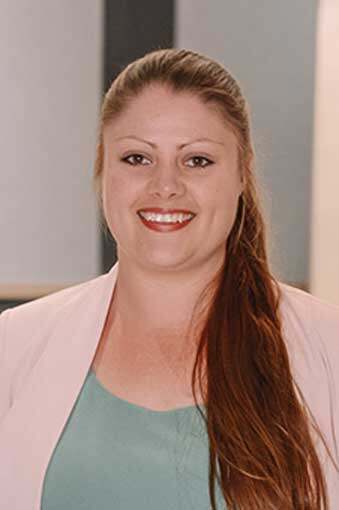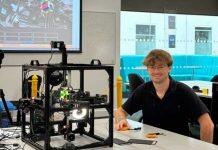Dr Kyla-Louise Horne was sixteen when her grandmother died from Parkinson’s disease.
That loss – and her resultant decision to study neuropsychology to help others with the disease – has resulted in a significant funding boost for Dr Horne’s research work at the Christchurch-based New Zealand Brain Research Institute (NZBRI).


Dr Horne – who’s returning to the University of Otago, Christchurch as a research fellow in August – is the recipient of this year’s Canterbury Medical Research Foundation (CMRF) Emerging Research Fellowship Grant. The $180,000 grant will support her two-year research project, Visual hallucinations in Parkinson’s disease: Investigating their trajectories and neural mechanisms, exploring how and why hallucinations occur in patients with Parkinson’s disease.
“Receiving this Fellowship is extremely humbling. It will allow me to build on four years of work and help us paint a clearer picture of what’s happening in the brains of Parkinson’s patients who hallucinate,” says Dr Horne.
“Results from this research may potentially enable the development of new treatment options to reduce the likelihood of hallucinations, as well as solutions for those already affected by them.”
More than 12,000 New Zealanders are affected by Parkinson’s disease. There is as yet no known cure for the debilitating disease.
“Around half of all Parkinson’s patients experience hallucinations, and they vary from patient to patient. Some report seeing shadows out of the corner of their eyes, while others witness fully-formed shapes and figures which aren’t there,” says Dr Horne.
“While alarming for some and disconcerting for others, some patients surprisingly take comfort in these hallucination experiences. However, what we do know is that patients who experience them are far more likely to end up in residential care,” she says.
Dr Horne’s project will be informed by data from other studies she’s worked on, including the New Zealand Parkinson’s Progression Programme, based at the NZBRI.
This longitudinal study has followed over 320 Cantabrians with Parkinson’s since 2007.
“We’re hoping to use that data to characterise hallucinations in Parkinson’s disease, as well as looking at what might put people at greater risk of developing them,” says Dr Horne.”
From there, a group of 90 people with Parkinson’s – some who experience hallucinations, and some who don’t – and an additional 30 healthy older adult volunteers, will go through a series of computerised tests while having their brain activity recorded.
“That will mean we can get down to the nuts and bolts of what’s happening inside the brain,” she says.
Dr Horne says her grandmother experienced hallucinations as her Parkinson’s disease progressed, so she understands what it’s like to be a family member playing a supporting role.
“For me, it’s important when I’m researching to listen and really hear what my participants are experiencing. Having a personal connection to the disease certainly helps, because I know first-hand some of the challenges they can face.”
CMRF director Melissa Haberfield says the Foundation is “delighted” to play a part in supporting Dr Horne with her research.
“Dr Horne is an incredibly talented local researcher and we are so excited by the potential outcomes of this project. Most of us know, or have heard of someone with Parkinson’s disease. Investing in this Fellowship is about supporting an emerging researcher to develop their research career and to create a positive outcome in an area of health that affects many people in our community”.







































